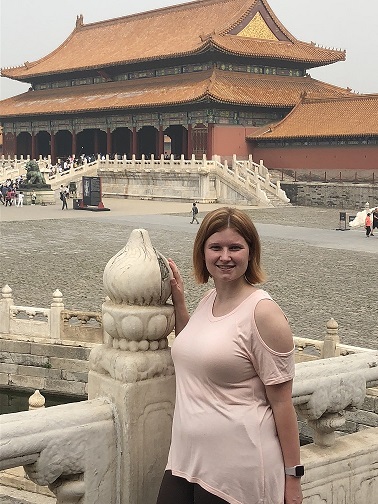Look All Ways Before Crossing the Road
My first impression of Beijing, China occurred during the cab ride from the airport to my Airbnb. At that time, I would have described Beijing at chaotic. From my Western eyes there seemed to be few road rules with cars darting through traffic and pedestrians. There were several moments when I thought my cab driver was going to hit another vehicle or a person. While I was in the backseat fearing a car wreck, my cab driver was only half paying attention to the road and was chatting on his phone despite what I thought was chaos. Only later would I realize how wrong my first impression of Beijing was. The longer I was in Beijing the less chaotic it seemed because the city gave me an education. I was looking at the activity around me on its face. The more I looked the more I noticed the specific organization of the roads and transportation. For instance, people get on and off the subway at the same time, yet because the people getting off go through the middle of the door and the people getting on go through the sides, it is both organized and efficient. Beijing taught me to look closer and be more aware of the whole picture instead of the small instances.
My second impression of Beijing was of the friendliness of the people here. Everyone was either helping or offering to help without me requesting their assistance. There was the cab driver who pointed me towards my location when I was definitely lost. There were also two lovely older ladies on the subway who waved to get my attention to point out a open seat for me. The kind police man who wanted to make sure that I knew where I was going. Everyone being so friendly and helpful was a big shock for me. I have been to multiple cities throughout the Western world such as New York, London, Berlin, Paris, and others. One characteristic that all of these cities had in common was that people tended to mind their own business and would only go out of their way to help if they were directly asked for assistance. Beijing is the opposite many will go out of their way to help you without you asking for assistance. In each of these moments I appreciated the offer even if I did not need the assistance. Beijing again taught me that differences are not black and white but rather full of color.
My experience with my internship was very similar to my experiences with Beijing. Everyone was friendly and the chaos I saw vanished the more I got to know the firm. Zhicheng mainly works on the rights of children and migrant workers.Currently, I am researching information gathered by the United Nations Human Rights Council on the state of children's rights in China and select other countries. Through this research I have learned much about how international organizations and NGOs work in the international community. Unlike domestic governments, international organizations do not have direct control over their members because of each country's national sovereignty. Instead, each country voluntarily enters these organizations that have treaties which each country voluntarily enters. For the Human Rights Council there is the Universal Periodic Review where every cycle each member's human rights are reviewed by other members who make suggestions to the country being reviewed. Then a report is released that outlines the review and the reviewed country's acceptance and/or rejection of the recommendations. The basis of the international community is the voluntary actions by each country. For the Universal Periodic Review each country voluntarily entered to improve its human rights standards.
In this first week, I have learned many things such as looking at situations more deeply, that not all similar situations are the same, and that anything can be improved as long as one takes the first voluntary step. I am excited to see what more I will learn from my ten weeks living and working in Beijing. I already learned that I must look all ways before crossing the road because that is how Beijing stays efficient.
